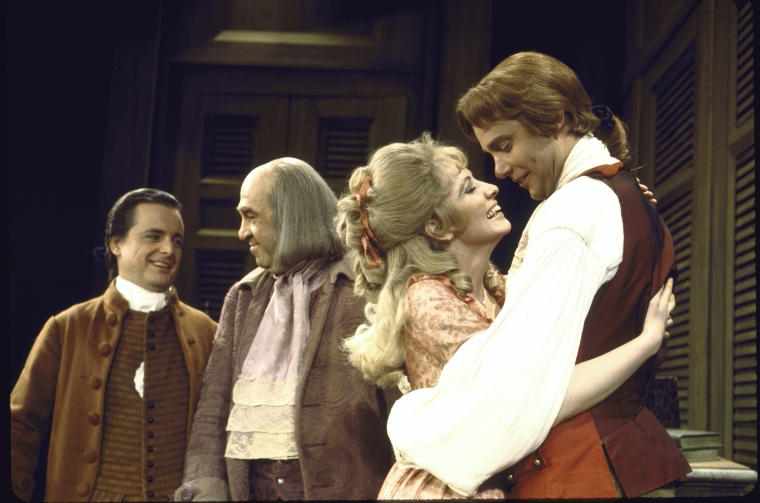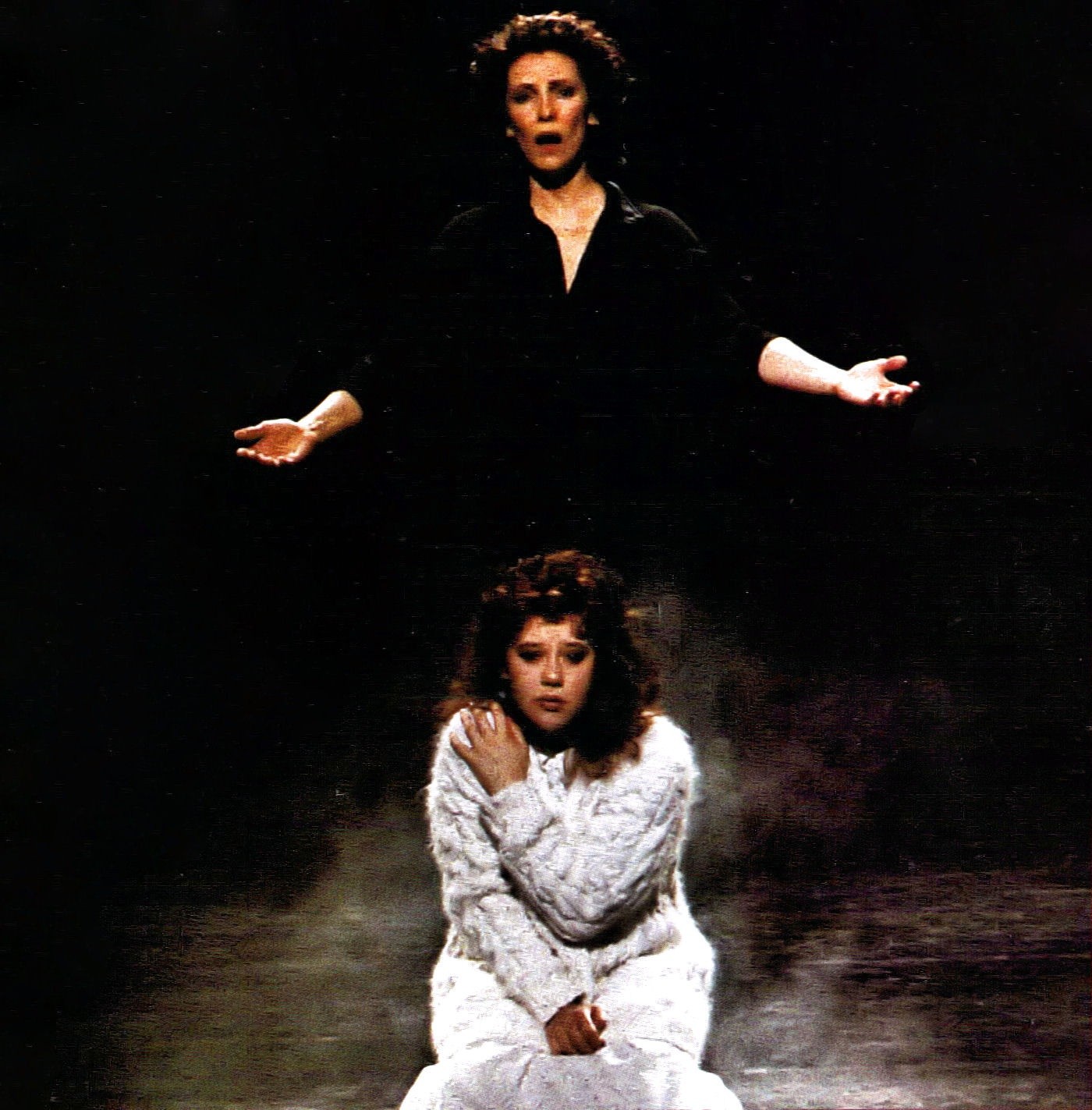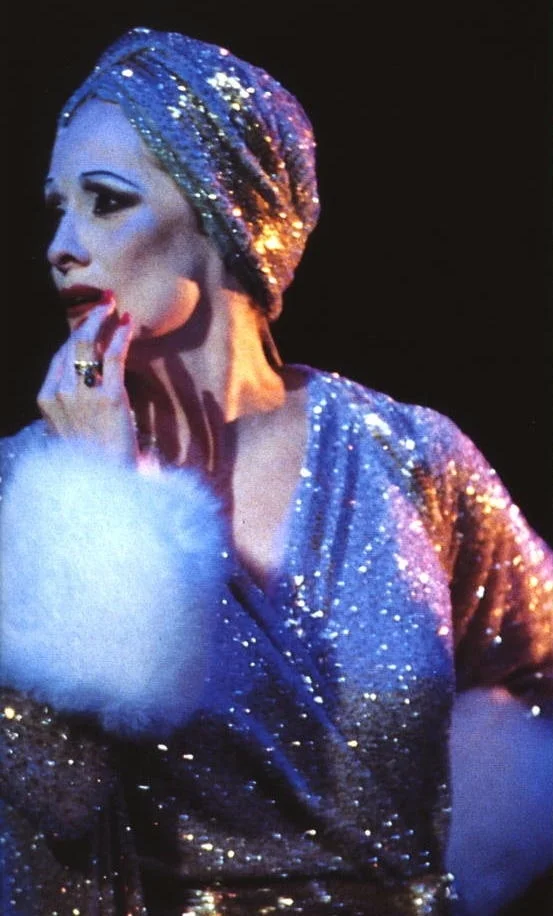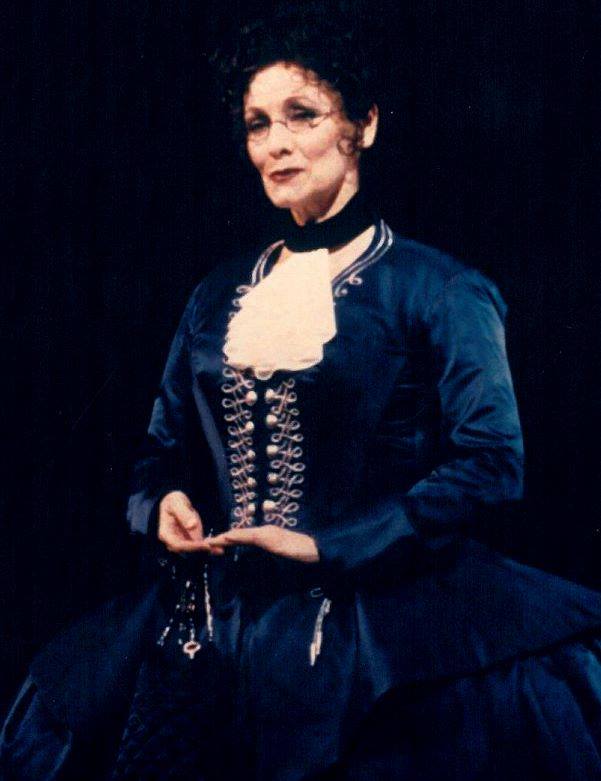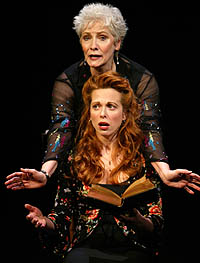The Bewitching Betty Buckley
Like most of the people who grew up in the 70s and 80s, my introduction to Betty Buckley came through the television drama Eight is Enough. Buckley played Abby Bradford, forever redesigning the world's perceptions of stepmothers everywhere with a portrayal of patience, kindness and understanding. Little did we children of the 70s and 80s know that Buckley was an established musical theatre talent who, after Eight is Enough, would evolve into one of the most beloved stars on Broadway.
Now, Ms. Buckley is starring in a production of Grey Gardens at the Bay Street Theatre set to run August 4th-30th. I think it is fair to assert that this is brilliant casting, her ethereal fire and ice voice combined with both her bravura comedic talents and her flair for playing deeply eccentric characters make her a natural for the roles of Big and Little Edie. Her legion of fans will be sure to make their way to Sag Harbor to take in what is poised to be a very special production.
Buckley first appeared on Broadway in 1969 playing Martha Jefferson in the musical comedy 1776, introducing the infectious “He Plays the Violin.” She went on to play Fran Kubelik in the West End premiere of Promises, Promises, her powerful vocals preserved on that cast recording. She also played Catherine during the original Broadway run of Pippin. It wasn’t long after this that she would be whisked away to Hollywood to step in for actress Diana Hyland (who played Joan Bradford and who died after the first four episodes of Eight is Enough), introducing the Bradford brood to their new stepmother Abby.
When Eight is Enough ended, Buckley returned to her theatre roots and won a Tony Award for playing Grizabella, the faded glamour cat in the New York premiere of Andrew Lloyd Webber's Cats. Anyone who has heard her haunting rendition of "Memory" has felt the electric thrill her vocal chords can viscerally provide. She would follow this by serving as Bernadette Peter’s replacement in Webber’s subsequent musical Song & Dance. Her next big Broadway outing would be in the Rupert Holmes musical The Mystery of Edwin Drood. Playing the title role, Buckley made a surprisingly handsome gentleman in the tradition of English Music Hall cross dressing. Her powerhouse renditions of songs like “The Writing on the Wall” and the duet “Two Kinsmen” are treasures unto themselves, captured gloriously on the original cast recordings.
In 1988, Buckley would assume the role in what may prove to be her most iconic performance, as the mentally deranged, religious zealot Margaret White in the stage musical adaptation of Stephen King’s Carrie. The show was an enormous flop of legendary proportions, but anyone who has heard Buckley’s spooky but heart-wrenching performance of such songs as “And Eve Was Weak” and “When There’s No One” knows that she was not the problem. In fact, most of the people who saw it celebrated her as the highlight of the troubled production.
From 1994-1996, Buckley would again inhabit a role in an Andrew Lloyd Webber musical, in both London and then taking over for Glenn Close in the Broadway production of Sunset Boulevard as Norma Desmond. Without a doubt, Buckley sang the Hell out of this score while finding subtle nuances in this faded film star, making her pain and delusions tangible. For many, this was Betty Buckley at her absolute finest. Haunting, spider-like, heartbreaking, Norma Desmond mined every ounce of her myriad talents to great effect, and Buckley delved deeper than she ever had before.
In 1997, Buckley once again headlined a Broadway premiere. Originating the role of the philosopher Hesione in the short-lived musical Triumph of Love. She received a Tony nomination despite the show’s short life. The original cast recording finds Buckley (as usual) delivering the goods, especially in the richly textured performance of the song “Serenity.” The song is so gently restrained and perfectly executed. It is a study in how subtlety and understatement can be as an effective choice as playing it big and brash.
For me, my favorite moment of Betty Buckley magic is her performance of “Children Will Listen” in Sondheim: A Celebration at Carnegie Hall from 1992. She sang the Into the Woods tune with such urgency and soaring beauty, augmented by its juxtaposition against the Harlem Boys Choir angelically performing “Our Time” from Merrily We Roll Along. This concert was recorded live and can be enjoyed on DVD. It is so emotionally rendered that you can actually see the power of the song overcome Buckley. She inhabits the song and the song inhabits her. It’s a symbiotic relationship of epic proportions, music and performer become one.
Betty Buckley also has appeared in several movies, though her career has been predominantly focused on the theatre. In the cinema, fans could enjoy her performances in Carrie (1976), Tender Mercies (1983), Wild Thing (1987), Wyatt Earp (1994), Simply Irresistible (1999) and The Happening (2008), among many others. It seems that there is no performance genre where she will not succeed and leave a lasting impression. It is, perhaps, because of this versatility that we love to keep her where we enjoy her the best: on the LIVE musical stage.
Since her stint in Triumph of Love, Buckley hasn’t been in a Broadway musical, but she has remained busy onstage nonetheless. She performed as Mama Rose in Gypsy at the Paper Mill Playhouse (1998), in William Finn’s Elegies: A Song Cycle at Lincoln Center (2003), The Threepenny Opera at the Williamstown Theatre Festival (2003), and Dear World in the West End (2013). She recently sang a gangbusters interpretation of “I’m Still Here” from Stephen Sondheim’s Follies for Follies in Concert at The Royal Albert Hall in London. She is a staple of cabarets and the solo concert circuit. However, those of us who love a Broadway musical champion the cause to bring her back to the Great White Way. Performers of Buckley’s talent and range are rare, and we long for the day she will once again ignite the footlights of a Broadway show. One can only imagine what she is going to bring to Grey Gardens, but I am certain magic will be the primary ingredient.



